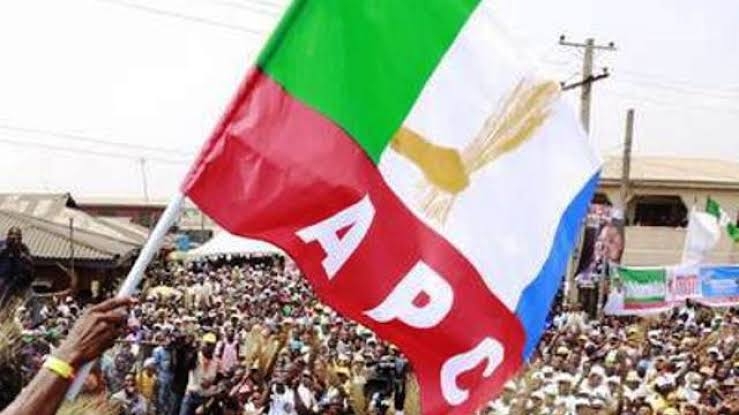Gov. Usman Ododo of Kogi and his party, the All Progressives Congress (APC) will, on April 15, open their defence at the state’s governorship election tribunal sitting in Abuja against the petition filed by the Social Democratic Party (SDP) and its candidate, Murtala Ajaka.
The three-member tribunal, chaired by Justice Ado Birnin-Kudu, fixed the date on Friday after SDP and Ajaka, the petitioners, who had initially said they had 400 witnesses, closed their case after calling 25 witnesses.
The Independent National Electoral Commission (INEC) is also expected to open its defence in the matter with two witnesses.
It would be recalled that the SDP and its governorship candidate in the Nov. 11, 2023 poll, are challenging Gov. Ododo’s victory in the election.
In the petition, INEC, Ododo and APC are listed as 1st to 3rd respondents respectively.
When the case was called on Friday, INEC, Ododo and APC’s lawyers opposed the move by Jibrin Okutepa, SAN, to lead the witness, Edidiong Udoh, a Digital Forensic Expert, in evidence.
Chief Kanu Agabi, SAN; Alex Iziyon, SAN and Emmanuel Ukala, SAN, who appeared for INEC, governor and APC, respectively, argued that the petitioners did not list the name of the witness in their proof of evidence and that the witness statement on oath was not front-loaded alongside the petition.
They also contended that the petitioners served the reports of the witness’ analysis on them 20 minutes before the commencement of the proceedings.
But Okutepa insisted that the forensic expert was listed on Page 56 of the petition as item 10, adding that his statement was also front-loaded.
He, however, admitted that the report was served on the respondents a few minutes to the proceedings.
The lawyer, therefore, prayed the tribunal to allow him to lead Udoh in evidence and stand down the matter for 30 minutes for the respondents to study the report.
Udoh, who described himself as a digital forensic expert living in Port Harcourt in Rivers, begged the tribunal to allow him amend Paragraph 7, Line 3 of his statement on oath, which he submitted on Jan. 12, before adopting it.
“The particular words that I used were not proper. I said, ‘There was some very suspicious software.’ I apply to change it to ‘there was no suspicious software used,’” he prayed.
But Agabi, Iziyon and Ukala disagreed with Udoh’s oral application.
“If this kind of amendment is permissible, then there is no kind of amendment that cannot be permissible,” Agabi said.
The judge asked them to reserve their objections for their final written addresses.
Iziyon and Ukala, who backed Agabi’s submission, agreed to raise the objection at the appropriate time.
While giving evidence, Udoh said he had 12 certificates in support of his qualifications.
And when Okutepa sought to tender the certificates of the witness as exhibits, the respondents’ lawyers objected.
They queried why the counsel only sought to tender photocopies of the certificates without supporting the documents with the originals.
The witness responded that he forgot to come with the original certificates.
“The originals were mistakenly left in my office in Port Harcourt but I have them,” Udoh said.
Although the tribunal refused to admit the photocopies, the petitioners’ lawyer pleaded, insisting that the certificates were personal documents and that they could be admitted.
Justice Birnin-Kudu admitted the documents and urged the counsel for the respondents to reserve their objections till the final written addresses.
While being cross-examined, the witness was asked if he was the only one that worked on the report, and he said seven other experts worked on it with him.
His attention was drawn to the fact that he did not signify the names of these experts in the report and that their signatures were not also included.
Udoh responded that his name and signature were on the report because he was the team leader.
“Eight of us conducted the analysis. As digital forensic experts, our qualifications are identical.
“I signed the report as the team lead. The reason I did not include their name is because I was the team lead,” he said.
The witness was also asked if he knew the meaning of BVAS Machine and what it contained.
He said BVAS were supposed to contain information on accredited voters and registered voters and any other information.
The respondents’ counsel asked if such information included Form EC8A and he said, “yes, it may include it.”
The respondents’ lawyer then asked if all the snap shots of BVAS Machine that were included in his report contained Form EC8A.
Udoh said the snap shots were only for accredited voters and registered voters.
The INEC guideline provides what BVAS should contain and Form EC8A is one of it.
When asked if he examined the ballot papers and if his findings on the ballot papers were contained in his report, he responded in the negative.
He, however, confirmed that INEC gave him the voters register but that he could not remember the number given to him.
A major discrepancy observed during the hearing was that figures reflected in the witness’ report conflicted with the figures contained in SDP’s petition.
But he said he did not depend on the petition to write his report.
The witness, who was said to have used the word, dactylography, in his report was asked if he knew its meaning.
Udoh said he knew the meaning as an expert in fingerprint.
His attention was then brought to his curriculum vitae, as tendered, which did not contain the certification in dactylography.
When asked if he knew that there was a certificate for experts in dactylography, he said he didn’t know.








